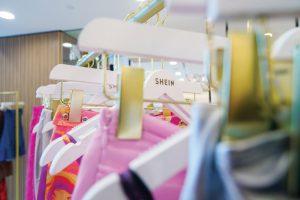BLOOMBERG
Fast-fashion giant Shein will strengthen its presence in Europe and Mexico, including selling more locally made products, in a bid to diversify its China-centric supply chain.
The company will launch an online marketplace in Mexico this month, where products from third-party sellers can be bought alongside Shein’s own brand of $10 dresses and $12 jeans. That’ll be followed by roll outs in Germany, Spain, France and Italy, in the third quarter.
The move builds on existing offerings in Brazil and the US and “reinforces the entire localisation strategy worldwide,†Leonard Lin, global head of public affairs, said in an interview at the company’s headquarters in Singapore.
“We’ll be prepared to grow the diversification and work with manufacturing suppliers in other countries as well.â€
Shein’s pivot to selling products other than its own, including Skechers shoes and Lansinoh mother-care items, brings it closer to what rival Temu offers.
The bargain shopping app backed by China e-commerce heavyweight PDD Holdings Inc has surged in popularity in the US and saw sales top Shein’s in May, with its wide array of items from clothing to socket wrenches.
Lin said Shein’s expansion isn’t a reflection of what competitors are doing and the firm will continue to focus on what it can offer to the young female shoppers that are its core clientele. There’s been a huge increase in demand from customers for more product variety, he said.
Despite its diversification push, the company remains heavily reliant on a vast network of contract manufacturers in China that churn out new designs in about 10 days to meet the fast-changing whims of Western consumers.
While the system has underpinned Shein’s rapid ascent — it far surpasses Zara and H&M in the US fast-fashion market — it’s also left the company mired in the middle of US-China tensions that are rippling across a raft of sectors.
The firm has also long faced criticisms that run the entire gamut of its operations from accusations about stealing designs, to links to forced labour and its contribution to overconsumption that’s harming the environment.
 The Gulf Time Newspaper One of the finest business newspapers in the UAE brought to you by our professional writers and editors.
The Gulf Time Newspaper One of the finest business newspapers in the UAE brought to you by our professional writers and editors.
